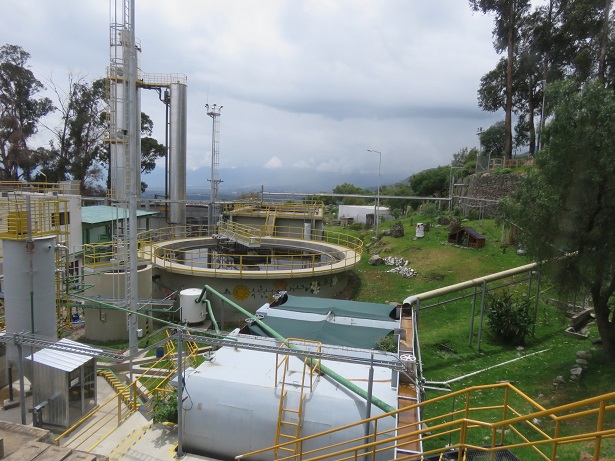Some urbanites in Covid lockdown are rediscovering their neglected gardens. Living in or near the city also gives you access to some products that are hard to find in farm country. For example, cabinet makers in the city may be able to give you wood shavings that you can use to make beds for pigs or chickens.

Iâve written before about the Taquiña brewery that releases waste waterâsometimes with a fine head of beer on itâwhile at other times it has detergent, or barley hulls, or it is clear. An irrigatorsâ association channels the water to grow carnations and other high value crops.
Taquiña has its factory in the foothills above Cochabamba, Bolivia, where spent, fermented barley mash, the grain solids left over from beer brewing, is heaped into large piles. We occasionally notice the mash when we park at the brewery to hike in the mountains. Ana always said it would make a good organic fertilizer, but it wasnât until February last year that she decided to do something about her idea. The brewery was happy for her to take the mash, on one condition: she had to take it all.
Ana rented a vintage truck and hired a driver, then returned to the brewery with a shovel and a hired helper. The mash was golden brown, with a light, yeasty smell, and all appeared fine until they dug into it. Inside the pile was rotten and flies had laid their eggs in it, the result of staying out too long in the rain. Peri-urban farmers use the mash to feed their pigs, but they hadnât been to collect it for some time.

Ana and her helpers made three trips home with around ten tons of mash. The mash smelled like sewage and it had the thick, sticky consistency of childrenâs modelling clay. I called it the stinky playdough.
Our neighbors had some choice words about the stench. Eventually we managed to get all of the stinky playdough spread over our small garden and the stench gradually disappeared. The flies went away, the plants grew and we forgot about the rotten mash. Until we were quarantined.
By March of this year our garden was overgrown with weeds. But then I found time in the evenings and the weekends to pull up the weeds and plant some vegetable beds. Years ago, the dirt in our garden was dull red, and lifeless, but after taking on the stinky playdough, the soil was rich and black, full of earthworms and just right for growing organic vegetables.
If I had to do it again, I would look for smaller, fresher batches of barley mash. Even so, the obnoxious, stinky playdough turned out to be a great fertilizer. Ana also collects a few other sources of organic matter, including lawn clippings from the neighbors. A lady who sells fresh-squeezed juice in the park gives us orange rinds, which compost quickly in Cochabamba.
Cities have abundant organic matter, partly from urban gardens, but mainly pulled in from the countryside. With a little creativity, you can grow your own healthy food in the city at low cost, without the need for chemical fertilizer.
Related blog stories
Related videos
Using sack mounds to grow vegetables
Mulch for a better soil and crop
Vermiwash: an organic tonic for crops
On using wood shavings to raise chickens near the city:
Working together for healthy chicks and
Making a business from home raised chicks
Further reading
Bentley, Jeffery W. 2015 âFlowers Watered with Beer.â Agriculture for Development 26:20-22.






